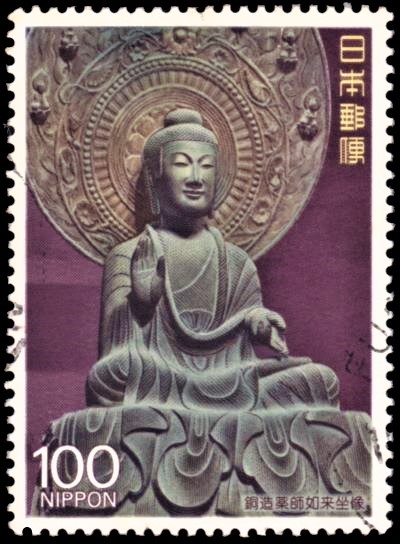
Zen master Gudo was the emperor’s teacher of his time. Nevertheless, he used to travel alone as a wandering mendicant.
Once, when he was on his was to Edo, the cultural and political centre of the Shogunate, he approached a little village named Takenaka. It was evening and it was raining heavily. Gudo was thoroughly wet. His straw sandals were in pieces.
At a farmhouse near the village he noticed four or five pairs of sandals in the window and decided to buy some dry ones. The woman who offered him the sandals, seeing how wet he was, invited him in to remain for the night at her home. Gudo accepted, thanking her.
He entered and recited a sutra before the family shrine. He was then introduced to the woman’s mother, and to her children. Observing that the entire family was depressed, Gudo asked what was wrong.
“My husband is a gambler and a drunkard,” the housewife told him. “When he happens to win, he drinks and becomes abusive. When he loses, he borrows money from others. Sometimes, when he becomes thoroughly drunk, he does not come home at all. What can I do?”
“I will help him,” said Gudo. “Here is some money. Get me a gallon of fine wine and something good to eat. Then you may retire. I will meditate before the shrine.”
When the man of the house returned about midnight, quite drunk, he bellowed: “Hey, wife, I am home. Have you something for me to eat?”
“I have something for you,” said Gudo. “I happened to get caught in the rain and your wife kindly asked me to stay here for the night. In return, I have bought some wine and fish, so you might as well have them.”
The man was delighted. He drank the wine at once and laid himself down on the floor. Gudo sat in meditation besides him.
In the morning, when the husband awoke, he had forgotten about the previous night. “Who are you? Where do you come from?” he asked Gudo, who was still meditating.
“I am Gudo of Kyoto and I am going on to Edo,” replied the Zen master.
The man was utterly ashamed. He apologised profusely to the teacher of his emperor.
Gudo smiled. “Everything in this life is impermanent,” he explained. “Life is very brief. If you keep on gambling and drinking, you will have no time left to accomplish anything else, and you will cause your family to suffer too.”
The perception of the man woke up as if from a dream. “You are right,” he declared. “How can I ever repay you for this wonderful teaching! Let me see you off and carry your things a little way.”
“If you wish,” assented Gudo.
The two started out. After they had gone three miles, Gudo told the man to go back home. “Just another five miles,” he begged Gudo. They continued on.
“You may return now,” suggested Gudo.
“After another ten miles,” the man replied.
“Return now,” said Gudo, when they crossed ten miles.
“I am going to follow you for the rest of my life,” declared the man.
Modern Zen teachers in Japan spring from the lineage of a famous master who was the successor of Gudo. His name was Mu-nan, the man who never turned back.
The original title of this story is “Finding a diamond on a muddy road”.
Source: http://www.101zenstories.org
Image: A postage stamp issued by Japan in 1989 features Yakushi Nyorai (Medicine Buddha or Healing Buddha) in Horyu temple, one of the first to develop in Japan after Buddhism’s introduction to the Japanese archipelago in the mid-sixth century. Originally venerated solely by ruling sovereigns and court elites to cure life-threatening illnesses, the Medicine Buddha later become the central deity in eighth-century rites to ensure the welfare of the entire realm. Courtesy https://www.buddhiststamp.com/
